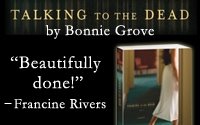
Eliza Clark has put together a slim book called Writer's Gym. It's available at Amazon.ca (but not at Amazon.com for some reason). It's published by Penguin Canada (Yeah Canada!). It's slim, but it's good. I'll say this here, if you are sensitive to language, this may not be the book for you. It's mainstream and there are examples of harsh language that are prevalent in our culture. Not that the book is over run with it, but it's there. Even Margaret Atwood uses the "f" word. And here I was thinking she was above all that. :)
Here are a few things I like about the book.
~The chapters are short. Some barely two pages long. These short chapters give you the feeling of a brief, intense "workout". Each chapter is contributed by a different person (author) and is dedicated to a different concept of writing. There are interviews too, which are just okay. I like the "Five Rules for Writers" that different authors list. They give good tips, and show how diverse approaches are to writing and what's important (and what's not) to different writers.
It's in a list of rules for writers that I want to linger for a moment. Kate Pullinger (she's Canadian born, now living in England) contributed her list of five rules. Rule #1 Never use adjectives and adverbs. Well, she lets up a bit on the adjectives (whew!) but insists writing be adverb free.
This is a good rule. A rule to be followed. I would personally be grateful if all of you were to turn to your volumes of writing and strike each "ly" word from the pages. It's amazing how much stronger your prose will be without them. You will be amazed and grateful.
But.
You knew there was a but, right?
One problem with this rule.
The use of the word "never". Never use adverbs?
Yes, use adverbs. Only use them better, smarter, and more interesting that other writers.
For this answer we need to turn to a different book. Arthur Plotnik's book Spunk and Bite offers the daring writer some good advice about adverbs (and a whole lot of other "rules" that we are supposed to care about). For all the details, go get the book, but for our purposes, what we need to know is that there are exciting ways to use adverbs in our writing that make the prose fresh and interesting. Chapter six of his book is dedicated to the subject. A take home lesson from this chapter is that, if paired with an unlikely word, adverbs can be used (sparingly) with spectacular results. For example: "Exactly nothing." "Violently beautiful." "Stunningly dull."
Practice using adverbs in fresh ways. You'll be stupefyingly glad you did.










No comments:
Post a Comment